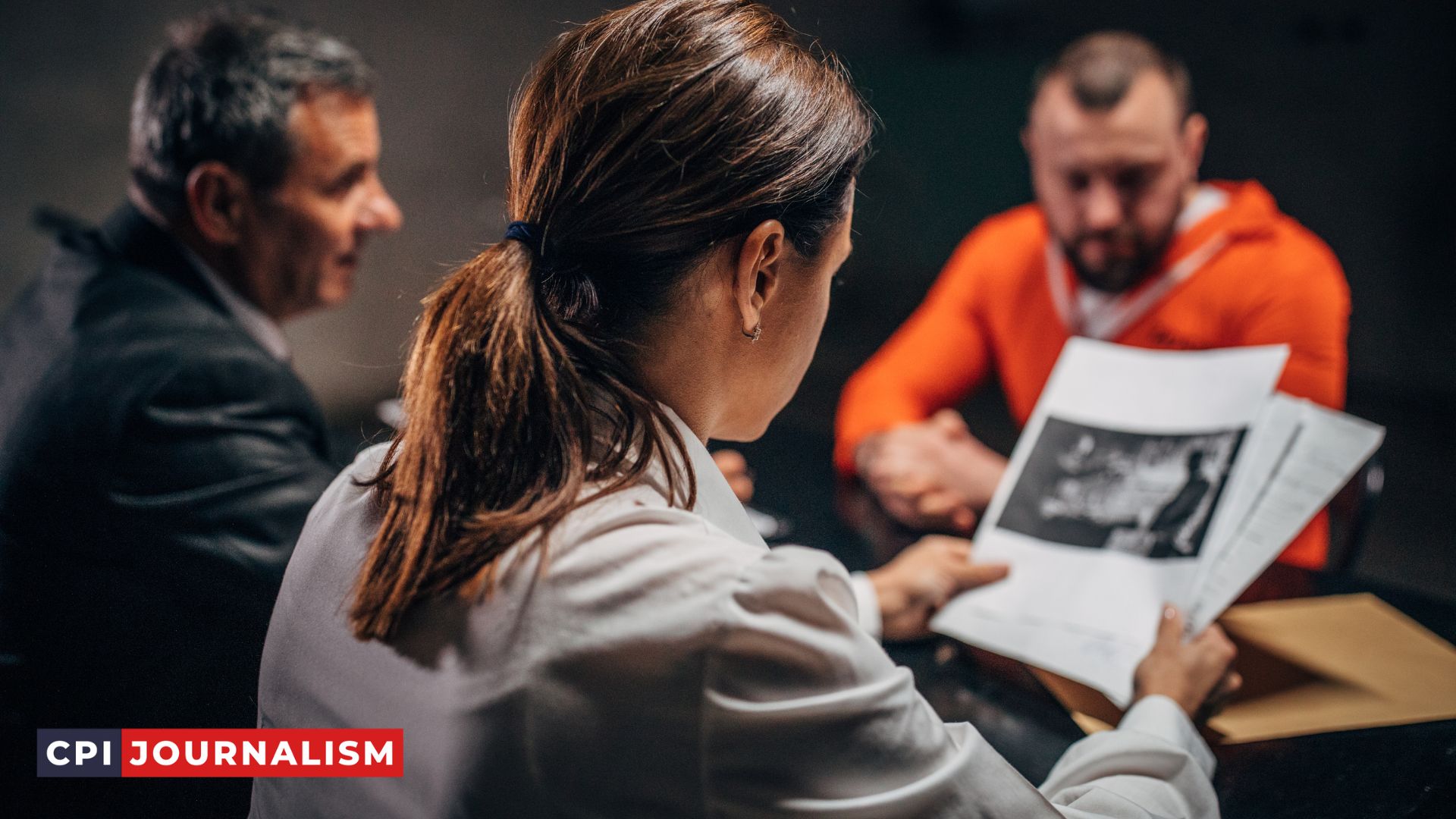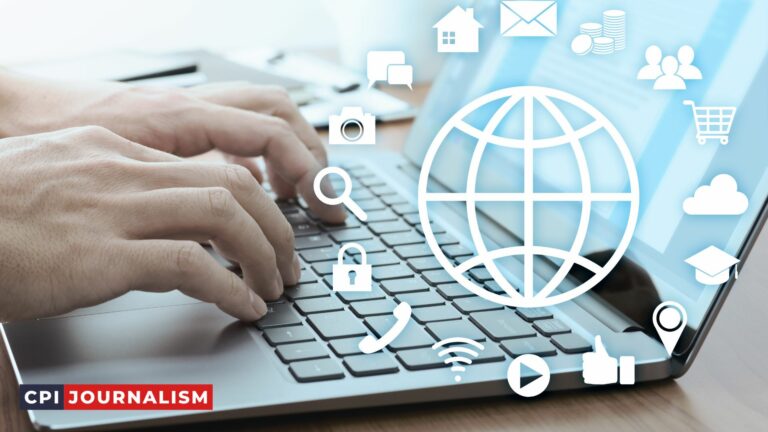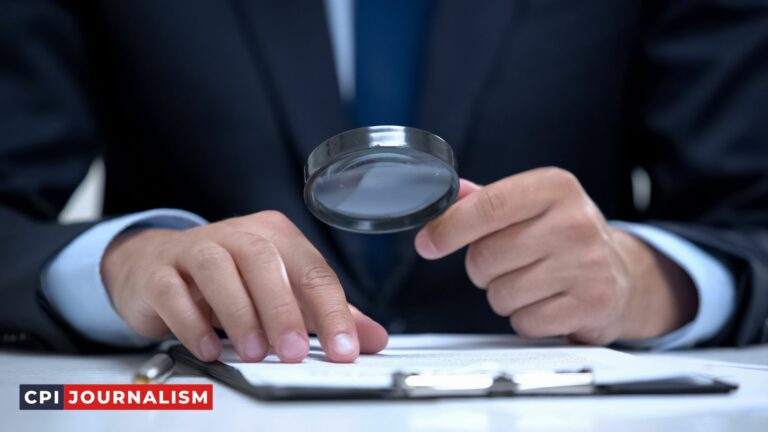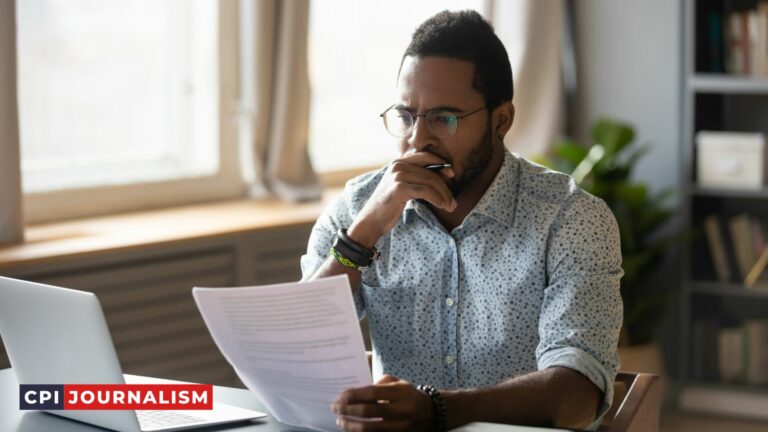What Are The Best Practices For Collaborating With Other Journalists On Investigative Projects?
As an experienced journalist, I’ve had the pleasure of collaborating with other journalists on investigative projects. I’ve learned firsthand the importance of maintaining a close relationship with colleagues in order to ensure that everyone is on the same page.
In this article, I will be discussing the best practices for collaborating with other journalists on investigative projects.
I’ll be covering topics such as the importance of communication and respect within the team, the roles and responsibilities of each journalist, and the importance of trust and transparency in the investigative process.
By following these best practices, journalists will be able to maximize their effectiveness and ensure that all of their investigative projects are successful.
A. Overview of Collaborative Investigative Journalism
Collaborative investigative journalism is a form of journalism that brings together the collective resources, knowledge and expertise of multiple journalists in order to create an in-depth investigative report.
It is a powerful tool for uncovering systemic issues, uncovering the truth, and providing a platform for the voices of marginalized and oppressed people to be heard.
When collaborating on an investigative project, it is important for journalists to recognize the potential for collaboration to strengthen investigative reporting.
By working together, journalists can share resources, build relationships with sources, and create a network of support, enabling them to access a wider range of information and perspectives.
Moreover, working together enables journalists to focus their efforts on specific aspects of the investigation and to divide the workload more evenly.
The success of a collaborative investigative project depends on the trust and mutual respect between the journalists involved.
It is essential that each journalist involved in the project is given sufficient time and space to contribute, and that their ideas and suggestions are taken seriously.
It is also important to ensure that the work is divided fairly and that all journalists involved are credited for their contributions.
In order to ensure the success of a collaborative investigative project, it is essential for all parties involved to have a clear and shared understanding of the goals and objectives of the project.
It is also important to agree on a timeline and a plan for how the project will be completed.
Finally, journalists should be aware of the ethical implications of their work and take the time to consider the potential impact of their reporting on their sources, the community, and the public.
II. Benefits of Collaborative Investigative Journalism
Collaborative investigative journalism has many benefits for those involved. It brings together the talents, knowledge, and resources of different individuals and organizations, allowing for a broader and more comprehensive investigation.
This can provide a much richer and more detailed picture of a given situation than could be achieved by a single individual or organization.
Moreover, working together can allow for a more balanced and objective approach to an investigation. Different perspectives and expertise can be leveraged to form a more complete and unbiased view of the facts.
By combining forces, investigative journalists can also access a broader range of sources and documents, allowing for a much more thorough examination of the issue.
Collaborative investigative journalism also offers a greater degree of protection to those involved. Working with a partner or team can help to reduce the risks inherent in investigating sensitive or dangerous topics.
It also allows for a greater degree of coordination and communication, making it easier to ensure that all parties are kept informed of developments and provided with the necessary support.
Finally, investigative journalism can be a powerful tool for social change. By combining forces and resources, investigative journalists can help to bring about meaningful and lasting change in areas such as corruption, poverty, and human rights abuses.
By working together, journalists can help to shed light on important issues and make a real difference in the lives of those affected.
A. Increased Resources
When collaborating with other journalists on investigative projects, one of the best practices that experienced journalists recommend is to focus on leveraging additional resources.
By pooling resources and collaborating with other journalists, it is possible to increase the breadth and depth of the investigation. This can be done by leveraging additional research and sources, as well as additional manpower to divide up tasks and cover more ground.
When collaborating with other journalists, it is important to identify the resources that each journalist brings to the project.
This could include the ability to access certain databases, contacts, or sources. It could also include specialized skills, such as the ability to analyze data or the ability to analyze certain types of evidence.
By understanding the resources available and making sure that everyone contributes what they can, it is possible to increase the resources available for the investigation.
Moreover, it is also important to maximize the resources available to the investigation. This includes making sure that all available sources are identified and all possible angles are explored. Additionally, it is important to leverage technology and digital tools to aid the investigation.
This includes using online databases, analytical tools, and document review and management software. By leveraging the best available tools and resources, the investigation can be conducted more efficiently and effectively.
B. Increased Reach
Collaborating with other journalists on investigative projects can be a great way to achieve greater reach and impact with an investigation. By working together, journalists can combine their unique skills and resources to create a more comprehensive, far-reaching story.
Additionally, working together can help to create a more diverse body of voices, perspectives, and expertise related to the investigation, further increasing its impact.
When collaborating on an investigation, it is important to ensure that there is a clear understanding of who is responsible for what. Each journalist should articulate their respective roles and ensure that everyone is on the same page.
This can help to avoid potential conflicts and ensure that the investigation is conducted in an efficient manner.
In addition, journalists should also think carefully about the platforms they use to promote and share the investigation.
Identifying the most effective platforms to reach their target audiences is key. For example, if the investigation is focused on a particular region, then local outlets may be the best way to reach the intended audience.
In contrast, if the investigation has a broader focus, then using larger, more well-known platforms may be more effective.
Finally, journalists should also take advantage of the power of social media. By promoting the investigation on social media platforms, journalists can reach a much wider audience, helping to ensure that their message is heard and the investigation’s impact is maximized.
C. Increased Expertise
Collaborating on investigative projects with other journalists is an invaluable way to increase your expertise and knowledge. It is essential to have a strong understanding of the stories and topics you are exploring, so it’s important to take the time to learn from your fellow journalists.
Here are some tips to help you maximize your collaboration and increase your expertise:
• Seek out experts in the field: Make sure to find journalists who specialize in the type of investigative project you are working on. This will give you the opportunity to learn from their experience and insights.
• Exchange ideas: Collaboration is not just about learning – it’s also about exchanging ideas, discussing different angles, and questioning assumptions. Take the time to discuss different approaches and strategies to uncovering the story.
• Compare notes: As you work together, it’s important to compare notes and share information. Make sure to take the time to review and analyze the data, and look for any discrepancies or inconsistencies.
• Share resources: Take advantage of the collective resources available by sharing contacts, sources, and other resources. This will give you the chance to access a wider range of information, leading to a more comprehensive investigation.
By collaborating with other journalists, you can increase your expertise and knowledge, as well as gain valuable insight into the investigative process.
Taking the time to learn from each other can be a great way to produce an in-depth and well-researched story.
D. Improved Quality of Reporting
Collaborating with other journalists on investigative projects can have the added benefit of improved quality of reporting. By working with colleagues, reporters can take advantage of their different strengths in order to put together a more complete and accurate story.
This could include having a member of the team who specializes in data journalism, another who is a specialist in photography, and another who is an expert in marketing. By pooling the talents of these different reporters, the team can create a more comprehensive report.
Furthermore, reporters can benefit from having additional sets of eyes review their work. This can help to identify any errors or omissions in the story, as well as provide a fresh perspective on the project.
The ability to receive feedback from colleagues can also help reporters to refine their skills and develop a higher quality of reporting.
Finally, having multiple reporters on the team can help to ensure that the story is seen from different angles. This can ensure that all potential angles are considered, and that the reporting is comprehensive.
This can also help to provide a more balanced approach to the story, and ensure that the reader is exposed to all sides of the story.
In conclusion, collaborating with other journalists on investigative projects can help to ensure better quality of reporting.
By taking advantage of the different strengths of the team, as well as the ability to have multiple sets of eyes review the work, reporters can ensure that their work is comprehensive and accurate.
Best Practices For Collaborative Investigative Journalism
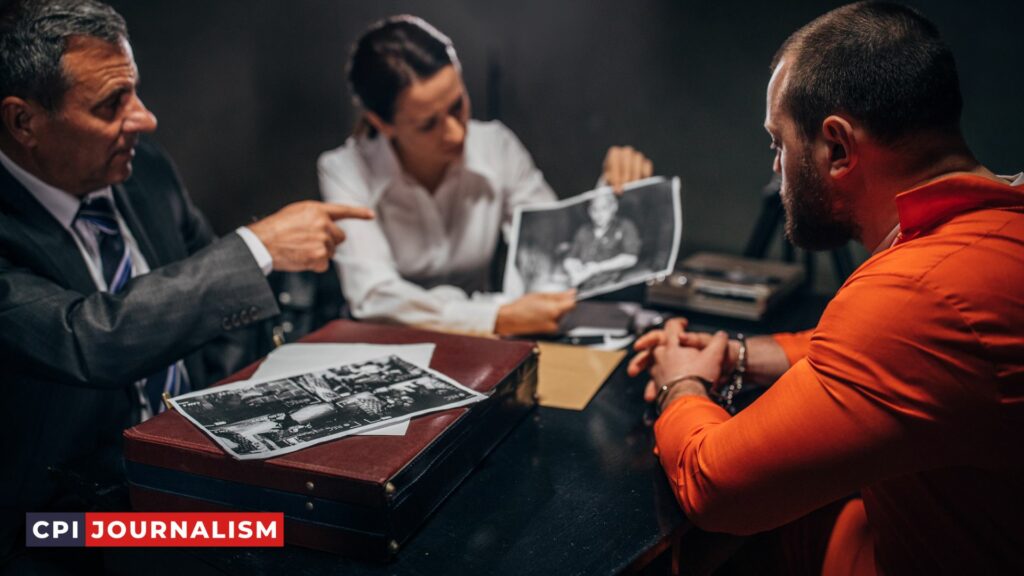
1. Establish Clear Goals and Objectives: Before beginning any collaborative investigative project, it is essential to establish clear goals and objectives. This will help ensure that all parties involved are on the same page and working towards the same ultimate outcome.
It is also important to ensure that all parties understand the scope of the project and the timeline for completion.
2. Select the Right Team: Select a team that is well-suited to the investigative project, with members who possess the skills, knowledge and experience necessary to complete the project successfully.
It is also important to ensure that all members have the necessary resources and time to dedicate to the project.
3. Communicate Openly and Regularly: Communication is key to successful collaboration. It is important to maintain open and regular communication with all parties involved in the project.
This ensures that everyone is on the same page, and any issues can be addressed quickly and efficiently.
4. Respect Each Other’s Contributions: All parties involved in the project should respect each other’s contributions and work collaboratively towards a successful outcome.
It is important to remember that each person’s contribution is valuable, and any disagreements should be addressed in a respectful manner.
5. Document All Findings: It is essential to document all findings throughout the investigative process. This will help ensure that the project is completed accurately, and any findings are properly recorded.
6. Follow Ethical Guidelines: It is also important to ensure that all parties involved in the project adhere to ethical guidelines. This includes maintaining a high level of transparency and accuracy throughout the investigative process.
By following these best practices, collaborative investigative journalism can be carried out effectively and efficiently.
By working together, journalists can gain access to a wider range of information and resources, and can work towards uncovering the truth.
A. Establish Clear Goals
When collaborating with other journalists on an investigative project, it is essential to set clear goals. This will ensure that everyone is working towards the same end result and that each member of the team knows what is expected of them.
When setting goals, it is important to be as specific as possible. Goals should be specific and measurable, and should include a timeline for completion.
Take time to discuss the goals with everyone on the team, and ensure that everyone is in agreement with the timeline and the scope of the project.
It is also important to establish how success will be measured. Is success determined by the number of stories published, the number of interviews conducted, or the number of leads followed up on? Establishing a metric for success will help the team to stay focused and motivated.
Finally, it is important to remember that goals should be realistic and achievable. Setting unrealistic goals can lead to frustration and demotivation, so ensure that the goals are achievable within the timeline set.
B. Develop a Plan
Developing a plan for your investigative project is essential for ensuring a successful collaboration.
Here are some best practices to keep in mind when developing a plan.
1. Establish clear goals: The first step in developing a plan is to establish clear goals. Ask yourself what you want to accomplish with the project.
What questions do you want to answer? What information do you want to uncover? Having clear goals will help you stay focused and ensure that your collaboration is productive.
2. Set a timeline: Establishing a timeline is important for making sure that everyone involved in the project knows what is expected of them and when. It also helps you stay on track to meet deadlines.
3. Create a budget: It is important to create a budget for the project, especially if you are working with other journalists. This will help you determine how much money you will need to complete the project.
4. Identify roles and responsibilities: When working on a collaborative project, it is important to identify who will be responsible for what. This will help ensure that tasks are completed efficiently and that everyone involved is aware of their role in the project.
5. Plan for communication: Establishing a plan for communication is essential for successful collaboration. You should decide how often you will meet, how you will communicate, and who will be responsible for staying in touch with each other.
By following these best practices, you can ensure that your collaboration with other journalists is productive and successful. Developing a plan that takes into account these factors will help you achieve your investigative goals.
C. Assign Roles and Responsibilities
When collaborating with other journalists on an investigative project, it is important to assign roles and responsibilities.
This allows each journalist to focus on a specific aspect of the project, ensuring that the project is completed efficiently and effectively.
The first step is to assign a project leader. This should be someone who is experienced in investigative reporting and has a clear understanding of the project’s goals.
The leader is responsible for guiding the project, giving direction, and making sure that all tasks are completed in a timely manner.
The next step is to assign individual tasks to each journalist. It is important to consider each journalist’s skills and experience when assigning tasks.
For example, a journalist with strong research skills should be assigned research tasks, while a journalist with strong writing skills should be assigned writing tasks.
Finally, it is important to set deadlines for each task. This ensures that the project is completed on time and allows each journalist to plan their work accordingly. It also helps to make sure that each journalist is held accountable for their part of the project.
By assigning roles and responsibilities, journalists can work together effectively to complete an investigative project. This ensures that the project is completed efficiently and with the highest quality possible.
D. Establish Communication Protocols
As investigative journalists, it is important to establish clear and effective communication protocols when collaborating with other journalists on investigative projects.
It is essential to set up a clear system for communication between journalists, including the frequency and type of communication, as well as any relevant deadlines.
At the outset of the project, agree upon a system for tracking progress. Establishing a schedule for check-ins and progress reports allows everyone to stay on track and remain accountable.

It is also important to establish a system for communication, such as using email, phone calls, or text messages.
When assigning tasks, make sure that everyone is clear on what is expected of them. Each journalist should be given a specific task and deadline, and should be aware of the consequences of not meeting the deadline.
Establishing a system of accountability ensures that everyone is doing their part.
Finally, it is important to establish communication guidelines for the project. This includes guidelines for who is responsible for what tasks, as well as expectations for communication.
It is important to be clear about who is responsible for what tasks and who should be contacted in case of any issues or questions. This ensures that everyone is on the same page and prevents any confusion or delays.
By establishing clear and effective communication protocols, investigative journalists can ensure that their projects run smoothly and efficiently.
It is important to set up a system for communication, tracking progress, and accountability, as well as creating clear communication guidelines for the project. This will ensure that everyone is on the same page and that the project is completed successfully.
E. Utilize Technology
Technology has changed the way investigative journalism is done. Today, digital tools can be used to streamline communication and collaboration between journalists, enhance research capabilities, and improve the speed and accuracy of reporting.
As such, utilizing technology is an important best practice when collaborating with other journalists.
First of all, take advantage of communication platforms such as Slack, Skype, or WhatsApp to facilitate communication between multiple journalists and sources.
These tools allow journalists to quickly and easily share information and documents, brainstorm ideas, and ask questions.
Second, use a cloud-based project management system like Asana or Trello to keep track of tasks, deadlines, and progress. This will help you and your team stay organized, stay on track, and avoid any miscommunications.
Third, use digital research tools like Google Trends, Google Scholar, and Google Alerts to help you uncover relevant information. These tools will save you time and help you find data and resources you may not have otherwise known about.
Finally, don’t underestimate the power of social media. Not only can it be used to find sources and build a readership, it can also be used to track and investigate stories.
By using a combination of hashtags, keywords, and geotags, you can uncover stories that may otherwise have gone unnoticed.
By utilizing these digital tools, journalists can collaborate more efficiently and effectively. Taking advantage of technology is an important best practice for any investigative journalist.
F. Utilize Data Analysis Tools
Data analysis tools can be a powerful resource when collaborating on investigative projects. Data analysis allows journalists to uncover patterns, trends and correlations in large datasets, which can be incredibly helpful when trying to uncover a story.
When using data analysis tools, it is important to be aware of the different types of analysis available. Data analysis can be exploratory, predictive or causal, and each type has its own strengths.
Exploratory data analysis is used to uncover patterns and trends in the data, and to identify correlations.
Predictive data analysis is used to make predictions based on past data and trends. Causal data analysis is used to identify causal relationships between different variables.
It can also be helpful to use visualizations when analyzing data. Visualizations allow journalists to more easily identify patterns and trends, and can make it easier to present data to the public.
There are a variety of tools available for creating visualizations, such as Tableau, D3.js, and Matplotlib.
Finally, it is important to ensure that all data analysis is properly documented and verified. Journalists should be aware of any potential sources of bias or error, and should follow best practices for data analysis, such as using data that has been properly cleaned and formatted, and verifying results with independent sources.
By utilizing data analysis tools, journalists can uncover powerful stories and uncover the truth. It is an important part of the investigative process and should be used with caution and care.
G. Establish a System for Quality Control
In order to ensure the highest quality of collaboration between journalists on investigative projects, it is essential to establish a quality control system.
This system should be inclusive of all parties involved and should be regularly reviewed and updated as needed.
First, set clear expectations and goals for the project at the onset. This should include the scope and timeline of the project, as well as specific deliverables and deadlines.

This will help to ensure that all parties have a clear understanding of their roles and responsibilities, and that the project will remain on track.
Second, develop a system for communication, such as a shared workspace or messaging platform. This will ensure that all parties have a forum for discussing progress, sharing resources, and obtaining feedback from the group.
Third, set up a system for reviewing the work of the investigative team. This should include an editor who is not part of the investigative team, and who is responsible for providing feedback and making sure that all work meets the quality standards of the team.
Finally, develop a system for tracking progress and addressing any issues that arise during the course of the project. This could include regular check-in meetings, which should be used to review the progress of the project and provide any necessary guidance or feedback.
By following these best practices, journalists can ensure that their collaborations are of the highest quality and provide maximum value.
IV. Conclusion
Collaborating with other journalists on investigative projects is a critical aspect of investigative journalism.
By taking into account the best practices for collaboration discussed in this article, journalists can ensure that their investigative projects are successful and produce meaningful results.
First and foremost, it is essential to have a clear understanding of the project goals and objectives before beginning the collaboration process.
This allows journalists to work towards a common goal and helps to prevent misunderstandings and potential conflicts.
Additionally, it is important to be open and honest with each other throughout the entire process. This will allow journalists to come to agreements quickly and build trust between one another.
Finally, it is essential to have a clear plan and timeline in place. This will help to ensure that the project is properly organized and that deadlines are met.
Additionally, it is important to communicate regularly and make sure that all parties involved are on the same page.
By taking into account the best practices for collaboration discussed in this article, journalists can ensure that their investigative projects are successful and produce meaningful results.
A. Summary of Best Practices
1. Develop Relationships: Establishing relationships with other journalists is essential when collaborating on investigative projects. Get to know each other and build trust in order to work effectively together and create a successful outcome.
2. Designate Roles: When collaborating, it is important to designate roles so that everyone knows what is expected from them. This will ensure that each person’s contribution is recognized and valued.
3. Divide Tasks: Break down the investigative project into manageable tasks that each journalist can take on. This will ensure that the project is completed efficiently and in a timely manner.
4. Exchange Information: Be open and willing to share information and resources with your colleagues. This will help to create a successful and productive working relationship.
5. Schedule Regular Meetings: Regular meetings are important for keeping the project on track and for discussing any issues that arise. It is also a good idea to schedule informal meetings or brainstorming sessions to generate new ideas.
6. Have Fun: Don’t forget to have fun while working on the project! Working with other journalists is a great opportunity to learn, share ideas, and create something meaningful.
B. Benefits of Collaborative Investigative Journalism
Collaborative investigative journalism has many benefits, both for the individual journalists involved and for the public.
First, for the individual journalists, a collaborative investigative project allows them to access a larger pool of resources and ideas. By pooling their resources and skills, the journalists can access a wider variety of information, which can lead to better stories.
Additionally, the combined investigative skills of the individual journalists can lead to a more thorough investigation and a more in-depth story.
Second, for the public, collaborative investigative journalism can lead to more comprehensive and accurate stories.
By pooling their resources, the journalists can investigate a story from multiple angles, leading to a more comprehensive understanding of the issue in question.
Additionally, when multiple journalists are researching the same story, they can compare their findings and check each other’s work, leading to more accurate reporting.
Finally, collaborative investigative journalism can also lead to greater public engagement with the issues being discussed.
By involving multiple journalists in the investigative process, the public can be exposed to a wider variety of perspectives. This can help to improve public understanding of an issue and stimulate further debate and discussion.
Overall, collaborative investigative journalism offers a number of benefits, both for the individual journalists involved and for the public.
By pooling their resources, the journalists can access a larger pool of information and ideas, leading to more comprehensive and accurate stories.
Additionally, it can lead to greater public engagement with the issues being discussed, helping to improve public understanding.
C. Final Thoughts
Collaborating with other journalists on investigative projects can be an incredibly rewarding experience. It can bring fresh perspectives and ideas to the project, and can open up possibilities that would otherwise not be available.
At the same time, it is important to remember to respect the boundaries of other journalists, and to ensure that everyone is comfortable with the project, its goals, and the involvement of everyone involved.
Finally, it is important to remember that collaboration is a two-way street. As a journalist, you should always be open to learning from your colleagues and to sharing your own expertise and knowledge.
Doing so can help to ensure that the project is successful and that everyone involved is able to benefit from the experience.

